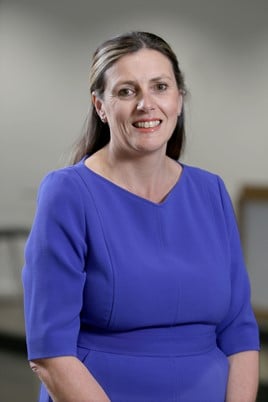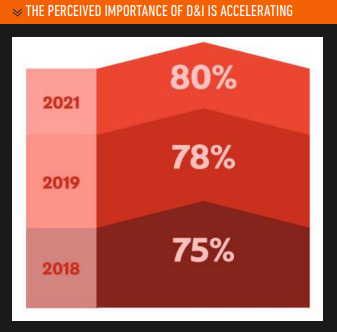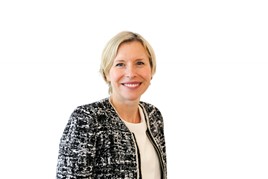As the automotive retail sector today embraces International Women’s Day (March 8) AM’s latest News Insight feature investigated the hurdles to improved diversity and inclusion (D&I) and the benefits it can bring.
Business leaders will have to “become comfortable with feeling uncomfortable” to make automotive careers appeal to a wider range of young talent through an improved culture of diversity and inclusion (D&I).
As car retail businesses across the UK launch 2022 apprenticeship recruitment drives, forging partnerships with education establishments and honing benefits packages to attract a new generation of talent amid a ‘staffing crisis’, the need to cast the net wider has never been greater.
In a candid interview recorded for the AM News Show podcast, Professor Jim Saker revealed some of the findings of research carried out by the Institute of the Motor Industry (IMI) Diversity Task Force.
And he concluded that change is “not going to happen naturally”.
There is a need to highlight the achievements of women who have succeeded in the automotive sector, alongside role models from different ethnic backgrounds, vital to achieving a more varied automotive workforce.
“We need to have role models in the form of women who are successful and we’re starting to have them,” said Saker, the IMI president and director of the Centre for Automotive Management at Loughborough University’s Business School.
“There are people at the top of Stellantis – Linda Jackson, Alison Jones and others – but they don’t tend to have the share of voice that they should do.
“We must do what we can to shine a light on their successes.” Saker said young people need to be able to see others like them succeeding in order to register that they can flourish in the same environment.
He added: “We’ve have spoken before about homophily. We tend to live in areas surrounded by people that are like ourselves, and we tend to recruit in our own image.
“If we can’t break that cycle of birds of a feather flocking together, we have a major problem because all we’re doing is recruiting from one very narrow part of our society and that, basically, is not good enough for an industry which is modernising, powertrains changing digitalisation.”
Alison Fisher, HR director at Cox Automotive International, was among panellists who joined Automotive 30% Club founder Julia Muir on stage to debate D&I at AM Live 2021.
‘EVERYTHING YOU KNOW IS BEING CHALLENGED’
Fisher said that, while there were “green shoots” emerging in the automotive sector’s pursuit of a more diverse workforce, there was a long road ahead that would prove uncomfortable for many.
 “People will have to get comfortable with being uncomfortable,” she said. “For the white middle-aged man, in particular, almost everything you know is being challenged right now. Culture of diversity and inclusion will be required if car retail businesses are to have a fighting chance of attracting the best young talent.
“People will have to get comfortable with being uncomfortable,” she said. “For the white middle-aged man, in particular, almost everything you know is being challenged right now. Culture of diversity and inclusion will be required if car retail businesses are to have a fighting chance of attracting the best young talent.
“Diversity can’t be divisive, making a career in the automotive sector ‘open for all’ is a path that we have to take.”
Fisher said that the focus needed to be on inclusion first and foremost.
“If we focus on diversity, we get bogged down in the need to get more women, more ethnically diverse people into the business,” she said.
“At Cox Automotive, we found that if you can be inclusive and you can create an environment where people are free to be themselves at work, then you will get more diversity.”
Fisher launched the Women with Drive network six years ago, to celebrate the success of women in the automotive sector.
Since then, the proportion of management roles filled by women at Cox has risen from 16% to just short of 30%.
As AM went to press, Cox was also in the process of selecting the next winner of its Barbara Cox Woman of the Year award.
The business’s drive to foster inclusivity has led it to develop employee resource groups focusing on sharing the stories and experiences of people from different ethnic backgrounds and LGBTQ+ communities.
Speaking to AM in what is LGBTQ+ History Month, Fisher said: “Change in the automotive sector needs to be cultural. You can put in quotas and policies but, if the culture doesn’t support that, it won’t work.”
Saker agreed. “If we’re trying to improve our sector, it is an educational process that involves us understanding more what other people are like and how they see the world,” he said.
“If we can do that then we can make not only the car industry, but society, better in accepting other people and we end up with less conflict and less abuse and people who are respected for who they are and the contribution they can make as an employee within the business.”
STEPS TO DIVERSITY
Saker said the IMI Diversity Task Force had uncovered evidence of behaviours which inhibited the career progress of people from different ethnic backgrounds and with disabilities.
Broad brush demands for a ‘clean UK driving licence’ had impacted a partially-sighted worker whose job role did not require him to drive, while a Muslim sales executive had been forced to pray in a dealership’s storage cupboard before a colleague spotted the issue and effected a change.
Work currently being completed by the IMI aims to develop training modules and qualifications that will help businesses to become more inclusive, Saker said.
Research carried out by global automotive executive search specialists, Ennis & Co, in partnership with Auto Trader, revealed that only 47% of the surveyed automotive organisations had a coaching programme for under-represented employee groups, and just 41% had a fully articulated D&I plan.
 Despite this, the proportion of respondents that agreed with the statement ‘D&I is very important to our business’ rose to a record 80% – up five percentage points in three years.
Despite this, the proportion of respondents that agreed with the statement ‘D&I is very important to our business’ rose to a record 80% – up five percentage points in three years.
Ennis & Co founder Lynda Ennis said: “The automotive retail sector still has some way to go in terms of broadening diversity and inclusion in the workplace.
 “Lack of diversity creates a vicious circle because it makes automotive retail a less desirable career consideration for people from under-represented backgrounds.
“Lack of diversity creates a vicious circle because it makes automotive retail a less desirable career consideration for people from under-represented backgrounds.
“That said, some dealer groups have made impressive progress in broadening their talent base, building teams that reflect the diversity of their customers.
“The need for a broader talent pool will only increase. As executive search specialists, we see every day how the rapid evolution of electric vehicles, online retailing and new mobility products has led to significant skills gaps.
“To succeed in this transforming landscape, companies will have no choice but to reach out proactively to diverse talent groups beyond the traditional automotive sector and create inclusive workplace cultures to recruit and retain the best people.”
Auto Trader chief operating officer Catherine Faiers was one of the first patrons of the Automotive 30% Club.
The organisation, created by Gaia Innovation founder Muir, has a target of filling at least 30% of key leadership positions within its organisations with diverse women by 2030.
 “Our PLC board now has a female majority, but you’re never done,” she said. “Who’s to say that, for example, 40% is the right proportion?
“Our PLC board now has a female majority, but you’re never done,” she said. “Who’s to say that, for example, 40% is the right proportion?
Faiers added: “Let’s be honest, the industry is now shaping the direction of travel. There’s a huge need for different skills and people from a variety of backgrounds.
“I think the shift to lower commission-based salaries, flexible working, less intense performance management and new job descriptions and recruiting practices are all playing their part.”
Speaking at AM Live, Muir cited McKinsey research which found diverse leadership is 25% more likely to have above average profitability, with diverse and female leadership increasing that to 36%.
“Business teams with a balance of women and men make better decisions than homogenous ones, leading to superior financial performance,” she said.
AMPLIFY SUCCESSES
The IMI Diversity Task Force will publish the findings of its research ahead of the IMI Dinner on March 17.
While a change of mindset in, and the perception of, the automotive sector is likely to take time, it may well serve to galvanise the steps that need to be taken to truly change things for the better.
Saker’s focus on D&I has helped him comes to terms with his role in the process.
“I learnt a great lesson from my daughter,” he said. “I chair the women’s professional basketball league in the UK and for most of the players their background is a very black urban environment. “I was saying part of my role is to give a voice of these black athletes. She said ‘dad, don’t be so patronising, they have a voice, your job is to amplify it’.
“Therefore, my role as part of the IMI with this task force is to amplify the voice of the people that are currently in the industry to understand what they are feeling and therefore be able to communicate them as role models for people outside our industry who might consider joining.
“If we can amplify that voice we’re succeeding in at least giving our industry and this sector a wider range of people from various communities.”















Login to comment
Comments
No comments have been made yet.